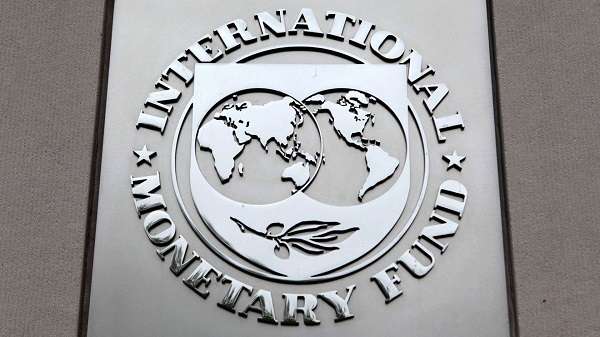Latest News
- 64 Cars Seized And 29,604 Traffic Citations Issued
- Increased Summer Electricity Demand Forecast In Kuwait
- Ethiopia And Kuwait Plan To Discuss Domestic Workers
- Syrian Expat Threatened By Fake Police
- PAM To Provides Shelter For Male Expat Workers
- Unemployed Kuwaitis Keep On Increasing Annually
- Fight Between Two Expats Leads To Stabbing At A Gas Station
- Kuwait Has One Of The Lowest Infection Rates In Its Health Facil...
- 70 Abandoned Vehicles Were Removed In Farwaniya
- Passengers' Dispute Leads To Delay And Legal Action On A Kuwait...
- Sahel App Launches Electronic Ration Card Renewal
- Education Officials Ban Filming And Publishing Student Content
Imf Celebrates Its 70th Anniversary

The international Monetary Fund (IMF) celebrates its 70th anniversary of monetary policy analysis and worldwide trade cooperation. Since its inception in 1945, the IMF has aimed to stabilize the international monetary system including the system of exchange rates and payments among nations by implementing and building a framework for global economic cooperation.
The IMF, based in Washington DC, was established on the sideline of a UN conference in the United States where 44 countries that participated in the conference signed for the IMF. Now its portfolio consists of 188 countries and it employs approximately 2,600 people representing most countries.
Its main focus is to encourage and guide countries to correct economic imbalances, manage inflation rates, and encourage market reforms to improve efficiency and contribute to a sustained economic growth. It also aims to make resources available to its members that need assistance or are experiencing "balance payment difficulties." The four biggest borrowers as of this year are Portugal, Greece, Ireland and the Ukraine.
One of the main functions the IMF continues to play is to provide advice and technical assistance to its members to promote transparency and ultimately foster a good governance. The IMF directs much attention to emerging markets such as India and China as they are "leading the world out of recession" reflected also by the IMF's decision to include the Chinese Yuan in its reserve currency basket by next October.
It also expanded its anti-money laundering and combating the financing of terrorism programs in the past decade, more precisely after the events of September 11 in New York, creating multiple funds and seeking to further develop the networks or tools needed to effectively combat them. Through its so-called "Article IV consultations", the IMF annually prepares a report in which experts provide policy advice on ways governments can adjust to the economic turbulences the world continues to face.
In its latest "Article IV consultation" report on Kuwait earlier this month, the IMF reiterated the rapid need for economic diversification and support the role of the private sector in the economy while it also provides high-producing-creative jobs. As a reaction to the falling prices of oil in the global markets, the IMF warned Kuwait of extra expenditure and the negative impact on its fiscal situation as a result of its dependency on oil revenue.
SOURCE : THETIMES
Trending News
-
 Ministry Announces Separate Time For Amnesty Seeke...
21 April 2024
Ministry Announces Separate Time For Amnesty Seeke...
21 April 2024 -
 The Ministry Connects With Violators Of Residency...
23 April 2024
The Ministry Connects With Violators Of Residency...
23 April 2024 -
 AstraZeneca Admits Covid Vaccine Can Cause Rare Si...
29 April 2024
AstraZeneca Admits Covid Vaccine Can Cause Rare Si...
29 April 2024 -
 Work Permits Will Be Issued For One Year Under The...
27 April 2024
Work Permits Will Be Issued For One Year Under The...
27 April 2024 -
 3 Expats Caught In Salmiya With 213 Bottles Of Loc...
23 April 2024
3 Expats Caught In Salmiya With 213 Bottles Of Loc...
23 April 2024 -
 Temperature Increases Cause Electricity Load Index...
21 April 2024
Temperature Increases Cause Electricity Load Index...
21 April 2024 -
 Al-Nuer Festival Celebrates Kuwaiti Agriculture Wi...
22 April 2024
Al-Nuer Festival Celebrates Kuwaiti Agriculture Wi...
22 April 2024 -
 Peak-time 'cut-offs' Raise Fears Of An Electricity...
22 April 2024
Peak-time 'cut-offs' Raise Fears Of An Electricity...
22 April 2024 -
 Gulf Electrical Interconnection Project Will Boost...
04 May 2024
Gulf Electrical Interconnection Project Will Boost...
04 May 2024 -
 Road Trip From Kuwait To Bahrain Via Saudi: Travel...
22 April 2024
Road Trip From Kuwait To Bahrain Via Saudi: Travel...
22 April 2024












Comments Post Comment